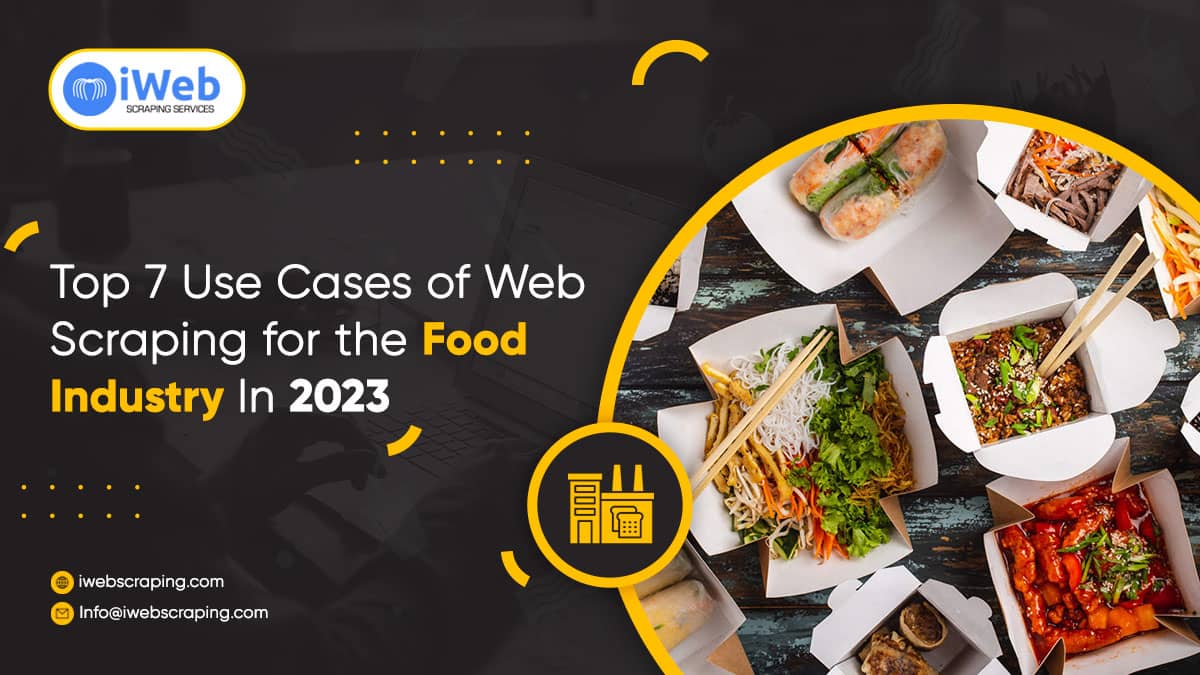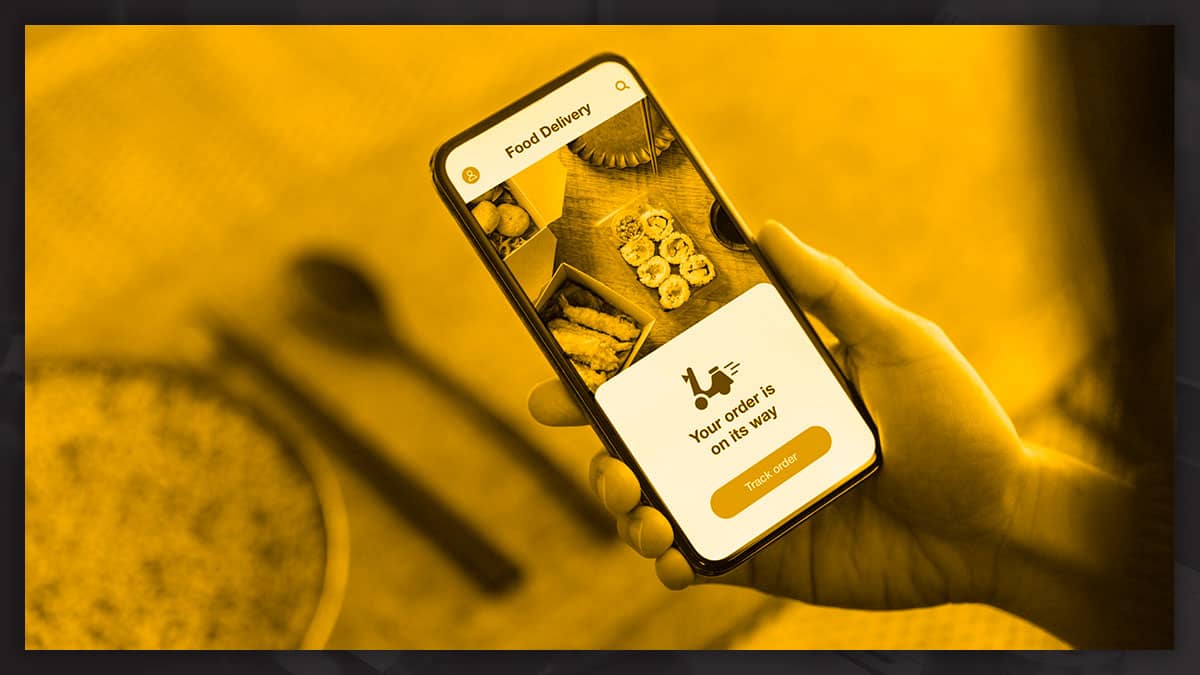Top 7 Use Cases of Web Scraping for the Food Industry In 2023

The food industry is a significant segment of the global economy. It comprises producing, processing, and distributing food products to consumers. The industry has been one of the fastest-growing industries in the world, with a rate of more than 5% per year.
It is a highly competitive industry with a high degree of fragmentation. This means that many players in this industry compete for customers by offering quality products at reasonable prices.
This high competition results in low-profit margins for companies, which forces them to look for ways to reduce costs or increase revenue through innovation and automation.
Website scraping is a technology that can help you with all these tasks. As a food industry expert, you can use it to get valuable data from websites, social media accounts, and more.
To help you get started with web scraping for your business, we have prepared this guide with seven practical use cases of data scraping for the food industry.
What Is Web Scraping?

Web scraping, also known as web harvesting, is the process of extracting information from a website. Most of these collected data are unstructured and in HTML format.
These scraped data are later converted into a structured format using a spreadsheet or database for various purposes. Currently, it is often used by companies to collect information about people's behavior on their websites.
It is done using a computer program that employs one or more bots who visit websites and gather specific information. The scraped data is then stored in a structured format so that programs and computers can quickly process it.
Type of Web Scraping
1. Software Web Scraper
This scraper is boundless and more complex because of its advanced features. It is a scraper you can download and use to scrape data from websites and other online resources. One of the main advantages of these scrapers is that you can extract more information as they do not rely on browser features to scrape data from websites.
2. Cloud Web Scraper
Cloud Web Scraper is different from other data scraping tools because it is cloud-based. This means that you do not need to download and install the software. Instead, you can access it from anywhere using a web browser simply by logging into your account.
It lets you extract, process, and manage high volumes of data in real-time. It is designed for extracting data from websites, parsing, transforming, and managing the extracted data in real-time.
3. Local Web Scraper
Local web scraping is the most common type of automated data scraping. It involves extracting data from a website hosted on your computer or server. It can be used for both commercial and non-commercial purposes.
4. Browser Extension
Browser extensions allow you to scrape data from web pages without installing any additional software on your computer. The downside is that they often have fewer features than software scrapers.
Is Web Scraping Legal?
Yes, it is legal only if you are doing it correctly. While web scraper api the website, there are specific terms and conditions that you have to follow so that you won't get stuck in some legal process.
For example: if you are using copyrighted material for a non-commercial purpose, such as research or study, then your use doesn't require permission from the copyright owner.
However, if you want to use the material commercially (or even non-commercially), you need to ask permission from the copyright owner first. If the owner refuses or charges too much money for their data, then you should find another source for your information instead of disobeying the law by scraping their site anyway.
Kinds of Food Delivery Data Your Can Scrape Using Web Scraping

Restaurant data includes:
- Name of the restaurants
- Contact details
- Location
- Ratings\Reviews
Food delivery data includes:
- Menu items
- Delivery times
- Working hours
- Discounts and promotions
- Menu images
- Prices\Ratings\Reviews
Top 7 Use Cases of Web Scraping in the Food Industry

Here are some of the most common use cases for data scraping in the food industry.
1. Collecting Competitive Intelligence
Data extraction can help you collect information on your competitors' products, prices, and marketing strategies to gain an edge over them. You can also collect information about your business using this technique, such as how well certain products are selling compared to others or which products generate the most revenue for you. This information can help you decide how much to spend on advertising campaigns and other marketing tactics.
2. Understanding Price Changes In Real-time
Food companies need to know when items are on sale or when prices have changed to adjust the pricing accordingly. Data scraping can help them collect data on each item's price history from multiple sources. This allows them to keep track of price movements and identify when prices may change — before anyone else knows about it!
3. Web Scraping for Product Pricing
In today's competitive market, businesses continually look for ways to offer better products at lower prices than their competitors. They often compare prices between different stores and websites to achieve this goal.
The process of comparing prices is called price scraping, which can be done using data scraping tools. The tools allow businesses to collect all information about a specific product, such as its price, availability, and other details, before deciding whether to buy it.
4. Gathering Pricing Information
The first use case of web scraping is gathering pricing information from the websites of your competitors or suppliers. You can easily collect their products' price lists from different sources and compare them with your products' prices. This will give you an upper hand over your competitors, who need this information at their fingertips.
5. Monitoring Reviews
Food businesses want to know what people say about them online — good and bad comments. A good review can help increase traffic to your business, while a negative review can hurt sales or even damage your reputation.
In such cases, it is important to use data scraping software to monitor what people say about your restaurant online. Using such tools, you can pull up all the relevant information from social media scraping sites such as Yelp. And see by yourself what people are thinking about your product and services.
6. Analyzing Consumers Trends
This is one of the most important use cases of web scraping, as this helps the food industry develop products and services as per the consumer's needs.
For instance, let's say you own a restaurant chain and want to know which areas of your menu people prefer more than others. You could analyze all reviews on Yelp, Zomato, or other sites by searching for specific keywords related to your product categories (e.g., "pizza," "steak," etc.).
You could also ask your customers directly by sending them an email survey asking how they rate different aspects of your product or service (e.g., taste rating).
7. Monitoring Supply Chain Activities
A company's supply chain that produces food products is highly complex and involves many different parties. These parties include suppliers, distributors, retailers, and consumers.
Companies need access to accurate information about each process stage to monitor this supply chain effectively. Data scraping allows them to collect this data quickly and easily so they can react immediately if there are any problems.
Final Thoughts
Food is an essential part of our life. We eat it daily; our food must be safe, healthy, and delicious.
Food industries in different countries have a lot of competition with each other. They all want to catch customers' attention and convince them to buy their products. This is why they are always looking for new ways to improve their products and make them more attractive to customers.
Web scraping can be an excellent tool for this purpose. It allows businesses to scrape food delivery data about their target audience to understand better who they are and what they want from them. It can also help companies get data about competitors' offers on the market to create better marketing strategies based on this information.
